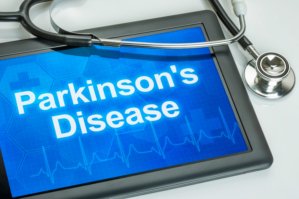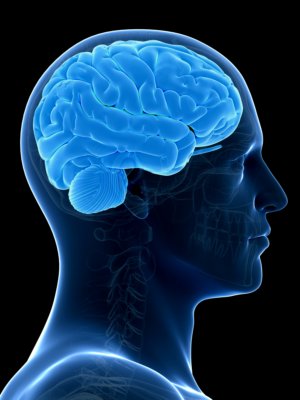afterLoad (456.28KB) (2.85ms)
afterInitialise (1.27MB) (75.98ms)
afterRoute (870.44KB) (37.24ms)
beforeRenderComponent com_tags (20.52KB) (5.51ms)
afterRenderComponent com_tags (1.4MB) (191ms)
afterDispatch (27.11KB) (2.54ms)
beforeRenderRawModule mod_articles_category (READ MORE...) (388.74KB) (29.11ms)
Before Access::preloadComponents (all components) (56.7KB) (660μs)
After Access::preloadComponents (all components) (103.05KB) (3.38ms)
Before Access::getAssetRules (id:8 name:com_content) (840B) (27μs)
After Access::getAssetRules (id:8 name:com_content) (7.05KB) (56μs)
afterRenderRawModule mod_articles_category (READ MORE...) (5.08KB) (241ms)
beforeRenderRawModule mod_tags_popular (Search) (4.81KB) (50μs)
afterRenderRawModule mod_tags_popular (Search) (3.18KB) (206ms)
beforeRenderRawModule mod_custom (Remember to download Heart Healthy Seniors) (816B) (40μs)
afterRenderRawModule mod_custom (Remember to download Heart Healthy Seniors) (4.86KB) (310μs)
beforeRenderRawModule mod_custom (Get additionel and more detailed knowledge ) (752B) (14μs)
afterRenderRawModule mod_custom (Get additionel and more detailed knowledge ) (1.67KB) (29μs)
beforeRenderRawModule mod_custom (BOOST YOUR IMMUNE DEFENSE) (608B) (11μs)
afterRenderRawModule mod_custom (BOOST YOUR IMMUNE DEFENSE) (928B) (23μs)
beforeRenderRawModule mod_custom (Are you taking supplements) (736B) (10μs)
afterRenderRawModule mod_custom (Are you taking supplements) (1.03KB) (19μs)
beforeRenderRawModule mod_custom (Antiaging) (720B) (9μs)
afterRenderRawModule mod_custom (Antiaging) (1.02KB) (4.21ms)
beforeRenderRawModule mod_custom (Exercise) (720B) (28μs)
afterRenderRawModule mod_custom (Exercise) (1.02KB) (34μs)
beforeRenderRawModule mod_custom (Check this before you buy a Q10 product) (752B) (11μs)
afterRenderRawModule mod_custom (Check this before you buy a Q10 product) (944B) (21μs)
beforeRenderRawModule mod_custom (Chronic fatigue tied Alan to his bed but Q10 capsules saved him:) (245.53KB) (7.26ms)
afterRenderRawModule mod_custom (Chronic fatigue tied Alan to his bed but Q10 capsules saved him:) (960B) (55μs)
beforeRenderModule mod_custom (Chronic fatigue tied Alan to his bed but Q10 capsules saved him:) (768B) (5μs)
afterRenderModule mod_custom (Chronic fatigue tied Alan to his bed but Q10 capsules saved him:) (1.3KB) (79μs)
beforeRenderRawModule mod_custom (Cholesterol-lowering without side effects:) (368B) (13μs)
afterRenderRawModule mod_custom (Cholesterol-lowering without side effects:) (2.19KB) (25μs)
beforeRenderModule mod_custom (Cholesterol-lowering without side effects:) (752B) (2μs)
afterRenderModule mod_custom (Cholesterol-lowering without side effects:) (1.28KB) (29μs)
beforeRenderModule mod_articles_category (READ MORE...) (21.32KB) (377μs)
afterRenderModule mod_articles_category (READ MORE...) (1.25KB) (1.27ms)
beforeRenderModule mod_tags_popular (Search) (5.17KB) (32μs)
afterRenderModule mod_tags_popular (Search) (1.27KB) (32μs)
beforeRenderModule mod_custom (Remember to download Heart Healthy Seniors) (1.17KB) (14μs)
afterRenderModule mod_custom (Remember to download Heart Healthy Seniors) (1.3KB) (23μs)
beforeRenderModule mod_custom (Get additionel and more detailed knowledge ) (368B) (257μs)
afterRenderModule mod_custom (Get additionel and more detailed knowledge ) (1.3KB) (37μs)
beforeRenderModule mod_custom (BOOST YOUR IMMUNE DEFENSE) (224B) (15μs)
afterRenderModule mod_custom (BOOST YOUR IMMUNE DEFENSE) (1.28KB) (44μs)
beforeRenderModule mod_custom (Are you taking supplements) (352B) (11μs)
afterRenderModule mod_custom (Are you taking supplements) (1.28KB) (23μs)
beforeRenderModule mod_custom (Antiaging) (336B) (10μs)
afterRenderModule mod_custom (Antiaging) (1.27KB) (20μs)
beforeRenderModule mod_custom (Exercise) (336B) (9μs)
afterRenderModule mod_custom (Exercise) (1.25KB) (21μs)
beforeRenderModule mod_custom (Check this before you buy a Q10 product) (352B) (9μs)
afterRenderModule mod_custom (Check this before you buy a Q10 product) (1.28KB) (20μs)
beforeRenderRawModule mod_menu (Main menu-US) (20.94KB) (658μs)
afterRenderRawModule mod_menu (Main menu-US) (152.66KB) (4.13ms)
beforeRenderModule mod_menu (Main menu-US) (720B) (7μs)
afterRenderModule mod_menu (Main menu-US) (4.36KB) (67μs)
beforeRenderRawModule mod_languages (Sprogskift) (3.44KB) (18μs)
afterRenderRawModule mod_languages (Sprogskift) (26.8KB) (8.13ms)
beforeRenderModule mod_languages (Sprogskift) (720B) (7μs)
afterRenderModule mod_languages (Sprogskift) (5.31KB) (28μs)
beforeRenderRawModule mod_finder () (6.34KB) (14μs)
afterRenderRawModule mod_finder () (214.16KB) (16.81ms)
beforeRenderModule mod_finder () (704B) (7μs)
afterRenderModule mod_finder () (5.79KB) (42μs)
beforeRenderRawModule mod_custom () (6.62KB) (158μs)
afterRenderRawModule mod_custom () (22.67KB) (5.34ms)
beforeRenderModule mod_custom () (704B) (8μs)
afterRenderModule mod_custom () (1.23KB) (65μs)
beforeRenderRawModule mod_menu (Main menu-US) (5.07KB) (132μs)
afterRenderRawModule mod_menu (Main menu-US) (5.8KB) (1.76ms)
beforeRenderModule mod_menu (Main menu-US) (720B) (6μs)
afterRenderModule mod_menu (Main menu-US) (1.25KB) (62μs)
beforeRenderRawModule mod_languages (Sprogskift Mobil) (912B) (22μs)
afterRenderRawModule mod_languages (Sprogskift Mobil) (3.89KB) (5.39ms)
beforeRenderModule mod_languages (Sprogskift Mobil) (720B) (8μs)
afterRenderModule mod_languages (Sprogskift Mobil) (1.27KB) (42μs)
beforeRenderRawModule mod_finder () (2.3KB) (13μs)
afterRenderRawModule mod_finder () (6.29KB) (3.65ms)
beforeRenderModule mod_finder () (704B) (7μs)
afterRenderModule mod_finder () (1.23KB) (59μs)
beforeRenderRawModule mod_custom () (8.66KB) (1.77ms)
afterRenderRawModule mod_custom () (904B) (214μs)
beforeRenderModule mod_custom () (704B) (4μs)
afterRenderModule mod_custom () (2.43KB) (45μs)
beforeRenderRawModule mod_custom () (688B) (108μs)
afterRenderRawModule mod_custom () (896B) (106μs)
beforeRenderModule mod_custom () (704B) (2μs)
afterRenderModule mod_custom () (2.71KB) (24μs)
afterRender (249.71KB) (36.43ms)
| 1 x afterRenderRawModule mod_articles_category (READ MORE...) (5.08KB) (26.93%) | 241.35ms |
| 1 x afterRenderRawModule mod_tags_popular (Search) (3.18KB) (23.01%) | 206.19ms |
| 1 x afterRenderComponent com_tags (1.4MB) (21.28%) | 190.68ms |
| 1 x afterInitialise (1.27MB) (8.48%) | 75.98ms |
| 1 x afterRoute (870.44KB) (4.16%) | 37.24ms |
| 1 x afterRender (249.71KB) (4.07%) | 36.43ms |
| 1 x beforeRenderRawModule mod_articles_category (READ MORE...) (388.74KB) (3.25%) | 29.11ms |
| 1 x afterRenderRawModule mod_finder () (214.16KB) (1.88%) | 16.81ms |
| 1 x afterRenderRawModule mod_languages (Sprogskift) (26.8KB) (0.91%) | 8.13ms |
| 1 x beforeRenderRawModule mod_custom (Chronic fatigue tied Alan to his bed but Q10 capsules saved him:) (245.53KB) (0.81%) | 7.26ms |
| 1 x beforeRenderComponent com_tags (20.52KB) (0.61%) | 5.51ms |
| 1 x afterRenderRawModule mod_languages (Sprogskift Mobil) (3.89KB) (0.6%) | 5.39ms |
| 1 x afterRenderRawModule mod_custom () (22.67KB) (0.6%) | 5.34ms |
| 1 x afterRenderRawModule mod_custom (Antiaging) (1.02KB) (0.47%) | 4.21ms |
| 1 x afterRenderRawModule mod_menu (Main menu-US) (152.66KB) (0.46%) | 4.13ms |
| 1 x afterRenderRawModule mod_finder () (6.29KB) (0.41%) | 3.65ms |
| 1 x After Access::preloadComponents (all components) (103.05KB) (0.38%) | 3.38ms |
| 1 x afterLoad (456.28KB) (0.32%) | 2.85ms |
| 1 x afterDispatch (27.11KB) (0.28%) | 2.54ms |
| 1 x beforeRenderRawModule mod_custom () (8.66KB) (0.2%) | 1.77ms |
| 1 x afterRenderRawModule mod_menu (Main menu-US) (5.8KB) (0.2%) | 1.76ms |
| 1 x afterRenderModule mod_articles_category (READ MORE...) (1.25KB) (0.14%) | 1.27ms |
| 1 x Before Access::preloadComponents (all components) (56.7KB) (0.07%) | 660μs |
| 1 x beforeRenderRawModule mod_menu (Main menu-US) (20.94KB) (0.07%) | 658μs |
| 1 x beforeRenderModule mod_articles_category (READ MORE...) (21.32KB) (0.04%) | 377μs |
| 1 x afterRenderRawModule mod_custom (Remember to download Heart Healthy Seniors) (4.86KB) (0.03%) | 310μs |
| 1 x beforeRenderModule mod_custom (Get additionel and more detailed knowledge ) (368B) (0.03%) | 257μs |
| 1 x afterRenderRawModule mod_custom () (904B) (0.02%) | 214μs |
| 1 x beforeRenderRawModule mod_custom () (6.62KB) (0.02%) | 158μs |
| 1 x beforeRenderRawModule mod_menu (Main menu-US) (5.07KB) (0.01%) | 132μs |
| 1 x beforeRenderRawModule mod_custom () (688B) (0.01%) | 108μs |
| 1 x afterRenderRawModule mod_custom () (896B) (0.01%) | 106μs |
| 1 x afterRenderModule mod_custom (Chronic fatigue tied Alan to his bed but Q10 capsules saved him:) (1.3KB) (0.01%) | 79μs |
| 1 x afterRenderModule mod_menu (Main menu-US) (4.36KB) (0.01%) | 67μs |
| 1 x afterRenderModule mod_custom () (1.23KB) (0.01%) | 65μs |
| 1 x afterRenderModule mod_menu (Main menu-US) (1.25KB) (0.01%) | 62μs |
| 1 x afterRenderModule mod_finder () (1.23KB) (0.01%) | 59μs |
| 1 x After Access::getAssetRules (id:8 name:com_content) (7.05KB) (0.01%) | 56μs |
| 1 x afterRenderRawModule mod_custom (Chronic fatigue tied Alan to his bed but Q10 capsules saved him:) (960B) (0.01%) | 55μs |
| 1 x beforeRenderRawModule mod_tags_popular (Search) (4.81KB) (0.01%) | 50μs |
| 1 x afterRenderModule mod_custom () (2.43KB) (0.01%) | 45μs |
| 1 x afterRenderModule mod_custom (BOOST YOUR IMMUNE DEFENSE) (1.28KB) (0%) | 44μs |
| 1 x afterRenderModule mod_finder () (5.79KB) (0%) | 42μs |
| 1 x afterRenderModule mod_languages (Sprogskift Mobil) (1.27KB) (0%) | 42μs |
| 1 x beforeRenderRawModule mod_custom (Remember to download Heart Healthy Seniors) (816B) (0%) | 40μs |
| 1 x afterRenderModule mod_custom (Get additionel and more detailed knowledge ) (1.3KB) (0%) | 37μs |
| 1 x afterRenderRawModule mod_custom (Exercise) (1.02KB) (0%) | 34μs |
| 1 x beforeRenderModule mod_tags_popular (Search) (5.17KB) (0%) | 32μs |
| 1 x afterRenderModule mod_tags_popular (Search) (1.27KB) (0%) | 32μs |
| 1 x afterRenderRawModule mod_custom (Get additionel and more detailed knowledge ) (1.67KB) (0%) | 29μs |
| 1 x afterRenderModule mod_custom (Cholesterol-lowering without side effects:) (1.28KB) (0%) | 29μs |
| 1 x beforeRenderRawModule mod_custom (Exercise) (720B) (0%) | 28μs |
| 1 x afterRenderModule mod_languages (Sprogskift) (5.31KB) (0%) | 28μs |
| 1 x Before Access::getAssetRules (id:8 name:com_content) (840B) (0%) | 27μs |
| 1 x afterRenderRawModule mod_custom (Cholesterol-lowering without side effects:) (2.19KB) (0%) | 25μs |
| 1 x afterRenderModule mod_custom () (2.71KB) (0%) | 24μs |
| 1 x afterRenderModule mod_custom (Remember to download Heart Healthy Seniors) (1.3KB) (0%) | 23μs |
| 1 x afterRenderModule mod_custom (Are you taking supplements) (1.28KB) (0%) | 23μs |
| 1 x afterRenderRawModule mod_custom (BOOST YOUR IMMUNE DEFENSE) (928B) (0%) | 23μs |
| 1 x beforeRenderRawModule mod_languages (Sprogskift Mobil) (912B) (0%) | 22μs |
| 1 x afterRenderRawModule mod_custom (Check this before you buy a Q10 product) (944B) (0%) | 21μs |
| 1 x afterRenderModule mod_custom (Exercise) (1.25KB) (0%) | 21μs |
| 1 x afterRenderModule mod_custom (Antiaging) (1.27KB) (0%) | 20μs |
| 1 x afterRenderModule mod_custom (Check this before you buy a Q10 product) (1.28KB) (0%) | 20μs |
| 1 x afterRenderRawModule mod_custom (Are you taking supplements) (1.03KB) (0%) | 19μs |
| 1 x beforeRenderRawModule mod_languages (Sprogskift) (3.44KB) (0%) | 18μs |
| 1 x beforeRenderModule mod_custom (BOOST YOUR IMMUNE DEFENSE) (224B) (0%) | 15μs |
| 1 x beforeRenderRawModule mod_custom (Get additionel and more detailed knowledge ) (752B) (0%) | 14μs |
| 1 x beforeRenderModule mod_custom (Remember to download Heart Healthy Seniors) (1.17KB) (0%) | 14μs |
| 1 x beforeRenderRawModule mod_finder () (6.34KB) (0%) | 14μs |
| 2 x beforeRenderModule mod_finder () (704B) (0%) | 14μs |
| 3 x beforeRenderModule mod_custom () (704B) (0%) | 14μs |
| 2 x beforeRenderModule mod_menu (Main menu-US) (720B) (0%) | 13μs |
| 1 x beforeRenderRawModule mod_custom (Cholesterol-lowering without side effects:) (368B) (0%) | 13μs |
| 1 x beforeRenderRawModule mod_finder () (2.3KB) (0%) | 13μs |
| 1 x beforeRenderRawModule mod_custom (BOOST YOUR IMMUNE DEFENSE) (608B) (0%) | 11μs |
| 1 x beforeRenderRawModule mod_custom (Check this before you buy a Q10 product) (752B) (0%) | 11μs |
| 1 x beforeRenderModule mod_custom (Are you taking supplements) (352B) (0%) | 11μs |
| 1 x beforeRenderRawModule mod_custom (Are you taking supplements) (736B) (0%) | 10μs |
| 1 x beforeRenderModule mod_custom (Antiaging) (336B) (0%) | 10μs |
| 1 x beforeRenderRawModule mod_custom (Antiaging) (720B) (0%) | 9μs |
| 1 x beforeRenderModule mod_custom (Check this before you buy a Q10 product) (352B) (0%) | 9μs |
| 1 x beforeRenderModule mod_custom (Exercise) (336B) (0%) | 9μs |
| 1 x beforeRenderModule mod_languages (Sprogskift Mobil) (720B) (0%) | 8μs |
| 1 x beforeRenderModule mod_languages (Sprogskift) (720B) (0%) | 7μs |
| 1 x beforeRenderModule mod_custom (Chronic fatigue tied Alan to his bed but Q10 capsules saved him:) (768B) (0%) | 5μs |
| 1 x beforeRenderModule mod_custom (Cholesterol-lowering without side effects:) (752B) (0%) | 2μs |
 The B vitamin biotin reduces neurological brain damage that is caused by manganese and resembles Parkinson’s disease. Although manganese is an essential mineral, excessive intake can act as a neurotoxin. However, according to a study published in Science Signaling, biotin appears to have a therapeutic effect on Parkinson-like symptoms by promoting the production of the neurotransmitter dopamine, which is important for the nervous system and mood.
The B vitamin biotin reduces neurological brain damage that is caused by manganese and resembles Parkinson’s disease. Although manganese is an essential mineral, excessive intake can act as a neurotoxin. However, according to a study published in Science Signaling, biotin appears to have a therapeutic effect on Parkinson-like symptoms by promoting the production of the neurotransmitter dopamine, which is important for the nervous system and mood.







 Vitamin B3 plays a crucial role in our brain and nervous system, and it is also important for our mental well-being. Studies suggest that lack of vitamin B3 increases the risk of dementia, Alzheimer’s disease, Parkinson’s disease, and schizophrenia. Moreover, epidemiological studies show that diets without vitamin B3 in them tend to cause aggression and an increased rate of homicide. Too little B3 can be caused by dietary shortages and environmental factors, but it also appears that some people have an increased need for the nutrient due to genetic variations and problems with utilizing the vitamin.
Vitamin B3 plays a crucial role in our brain and nervous system, and it is also important for our mental well-being. Studies suggest that lack of vitamin B3 increases the risk of dementia, Alzheimer’s disease, Parkinson’s disease, and schizophrenia. Moreover, epidemiological studies show that diets without vitamin B3 in them tend to cause aggression and an increased rate of homicide. Too little B3 can be caused by dietary shortages and environmental factors, but it also appears that some people have an increased need for the nutrient due to genetic variations and problems with utilizing the vitamin.
 Q10 is a unique and wonderful coenzyme with a key function in energy turnover and a role as a powerful antioxidant. The body produces the lion’s share Q10 for its own needs but the endogenous synthesis of the compound decreases with age. Moreover, cholesterol-lowering statins and bisphosphonates used to treat osteoporosis disrupt the body’s Q10 synthesis. Over the past decades, numerous studies have shown that Q10 supplementation can slow down the ageing process. Q10 is also useful in connection with heart failure and several other chronic ailments that typically occur in old age. This is described in a review article that is published in Mechanisms of Ageing and Development. With Q10 supplements, it’s important to choose pharmaceutical-grade products with documented quality and bioavailability.
Q10 is a unique and wonderful coenzyme with a key function in energy turnover and a role as a powerful antioxidant. The body produces the lion’s share Q10 for its own needs but the endogenous synthesis of the compound decreases with age. Moreover, cholesterol-lowering statins and bisphosphonates used to treat osteoporosis disrupt the body’s Q10 synthesis. Over the past decades, numerous studies have shown that Q10 supplementation can slow down the ageing process. Q10 is also useful in connection with heart failure and several other chronic ailments that typically occur in old age. This is described in a review article that is published in Mechanisms of Ageing and Development. With Q10 supplements, it’s important to choose pharmaceutical-grade products with documented quality and bioavailability. Neurological disorders such as Alzheimer’s disease, dementia, depression, Parkinson’s disease, stroke, migraine, and fibromyalgia are rather common. These conditions are a result of imbalances in the nervous system, and they are often insidious. In a new review article that is published in Frontiers in Neuroscience, researchers have studied Q10’s role in the different neurological disorders. The reason for this is that Q10 is important for cellular energy turnover and serves as an antioxidant that protects the circulatory system and the nerve cells against oxidative damage. As we grow older, our endogenous Q10 synthesis decreases, and certain diseases and medical drugs also impair the body’s Q10 synthesis.
Neurological disorders such as Alzheimer’s disease, dementia, depression, Parkinson’s disease, stroke, migraine, and fibromyalgia are rather common. These conditions are a result of imbalances in the nervous system, and they are often insidious. In a new review article that is published in Frontiers in Neuroscience, researchers have studied Q10’s role in the different neurological disorders. The reason for this is that Q10 is important for cellular energy turnover and serves as an antioxidant that protects the circulatory system and the nerve cells against oxidative damage. As we grow older, our endogenous Q10 synthesis decreases, and certain diseases and medical drugs also impair the body’s Q10 synthesis. Parkinson’s disease, also known as shaking palsy, is one of the most common chronic disorders among older people. There is no effective cure at this point, and the only way to address the disease is to suppress the symptoms but that does not treat the underlying cause. Even though most cases of Parkinson’s disease are sporadic, it turns out that the hereditary variants of the disease are linked to mutations in a particular gene. A team of scientists from University of the Basque Country in Spain has discovered that vitamin B12 blocks the enzyme that is involved in these mutations. An earlier study has also shown that in newly diagnosed Parkinson’s patients who have low levels of vitamin B12 the disease develops faster than in patients with higher levels of the nutrient.
Parkinson’s disease, also known as shaking palsy, is one of the most common chronic disorders among older people. There is no effective cure at this point, and the only way to address the disease is to suppress the symptoms but that does not treat the underlying cause. Even though most cases of Parkinson’s disease are sporadic, it turns out that the hereditary variants of the disease are linked to mutations in a particular gene. A team of scientists from University of the Basque Country in Spain has discovered that vitamin B12 blocks the enzyme that is involved in these mutations. An earlier study has also shown that in newly diagnosed Parkinson’s patients who have low levels of vitamin B12 the disease develops faster than in patients with higher levels of the nutrient.
 Parkinson’s patients have less vitamin B3 in their blood due to interactions with medicine and certain other factors. Vitamin B3 is important for our energy turnover and some of the symptoms of Parkinson’s disease may be caused by lack of B3. On the other hand, vitamin B3 supplements can help by reducing fatigue, improving handwriting, and improving your mood, according to a study that is published in Frontiers of Aging Neuroscience. The scientists assume that giving supplements of vitamin B3 to patients with Parkinson’s disease has the potential to improve quality of life and delay the progression of their disease.
Parkinson’s patients have less vitamin B3 in their blood due to interactions with medicine and certain other factors. Vitamin B3 is important for our energy turnover and some of the symptoms of Parkinson’s disease may be caused by lack of B3. On the other hand, vitamin B3 supplements can help by reducing fatigue, improving handwriting, and improving your mood, according to a study that is published in Frontiers of Aging Neuroscience. The scientists assume that giving supplements of vitamin B3 to patients with Parkinson’s disease has the potential to improve quality of life and delay the progression of their disease. There is a link between the widespread problems with vitamin D deficiency and the growing prevalence of Parkinson’s disease. In a review article that is published in the science journal Nutrients, a group of scientists look at vitamin D’s role in the nervous system and the brain. It is relevant to use supplements that optimize blood levels of vitamin D as part of the prevention and treatment of this disease.
There is a link between the widespread problems with vitamin D deficiency and the growing prevalence of Parkinson’s disease. In a review article that is published in the science journal Nutrients, a group of scientists look at vitamin D’s role in the nervous system and the brain. It is relevant to use supplements that optimize blood levels of vitamin D as part of the prevention and treatment of this disease. Psychological disorders represent society’s single largest disease burden, and an increasing number of people are affected by it. There can be a variety of causes, and lack of vitamin D appears to be an alarming risk factor. This is because vitamin D is involved in a host of different functions that are relevant for brain neurons, including signaling substances and the brain’s reward system that affects our mood. Vitamin D also helps protect the brain against toxins, atherosclerosis, and inflammation, according to a review article that is published in the science journal Cureus. But there are questions that need to be answered. How much vitamin D do we need? Can we get enough from sun exposure? Is there enough vitamin D in a regular vitamin pill? Why do children, seniors, pregnant women, overweight individuals, and dark-skinned people have an increased need for vitamin D? And which mineral is extremely important for the body’s ability to utilize vitamin D?
Psychological disorders represent society’s single largest disease burden, and an increasing number of people are affected by it. There can be a variety of causes, and lack of vitamin D appears to be an alarming risk factor. This is because vitamin D is involved in a host of different functions that are relevant for brain neurons, including signaling substances and the brain’s reward system that affects our mood. Vitamin D also helps protect the brain against toxins, atherosclerosis, and inflammation, according to a review article that is published in the science journal Cureus. But there are questions that need to be answered. How much vitamin D do we need? Can we get enough from sun exposure? Is there enough vitamin D in a regular vitamin pill? Why do children, seniors, pregnant women, overweight individuals, and dark-skinned people have an increased need for vitamin D? And which mineral is extremely important for the body’s ability to utilize vitamin D? "After about one week of taking the Q10 supplement I could feel a huge difference," says 23-year old Alan Piccini, who has been suffering from extreme fatigue and muscle aches ever since he was a child.
"After about one week of taking the Q10 supplement I could feel a huge difference," says 23-year old Alan Piccini, who has been suffering from extreme fatigue and muscle aches ever since he was a child. “Taking capsules with co-enzyme Q10 has freed me of the severe side effects of my cholesterol lowering medicine,” Mrs Franken explains.
“Taking capsules with co-enzyme Q10 has freed me of the severe side effects of my cholesterol lowering medicine,” Mrs Franken explains.